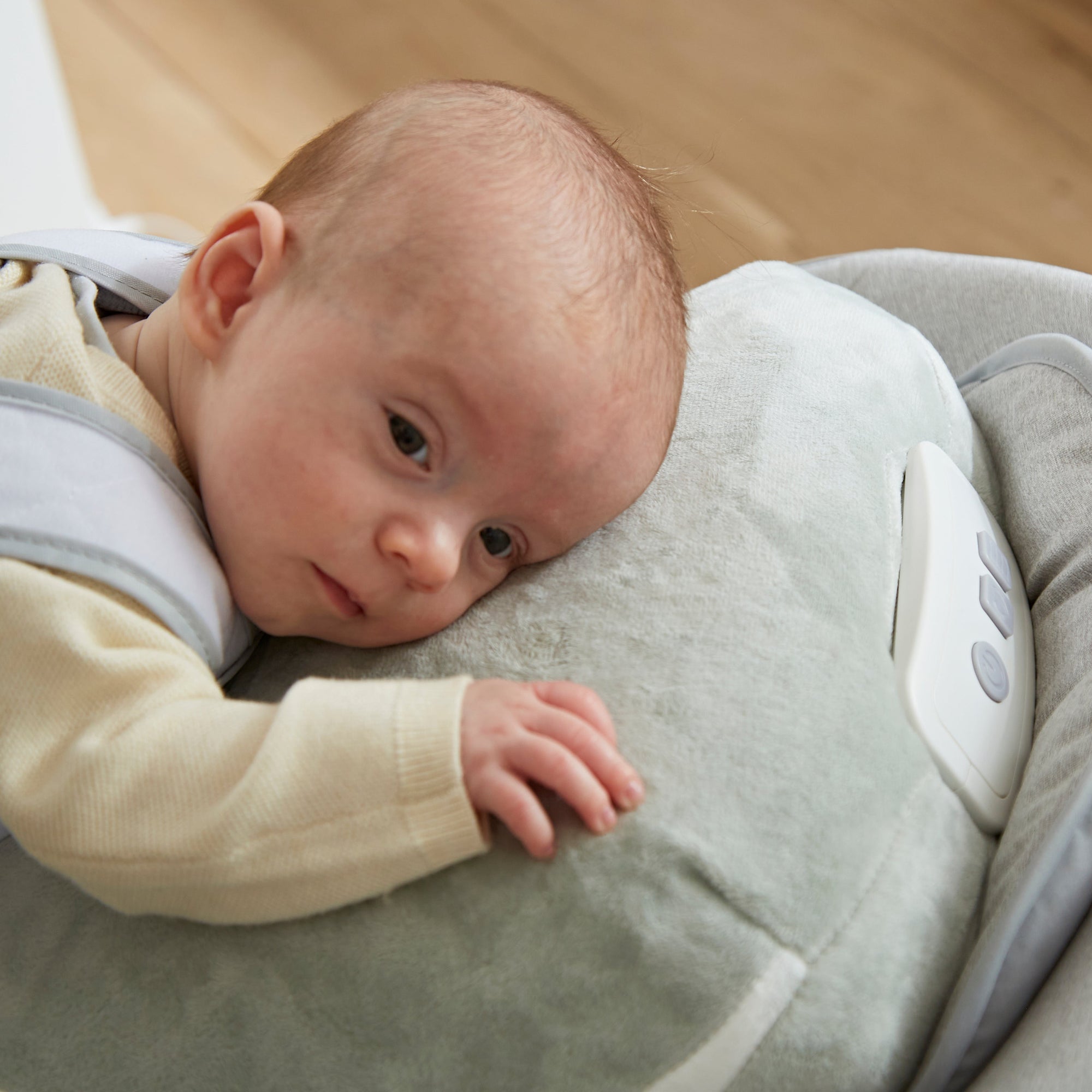Hiccups are very common in babies and if your baby seems to be hiccuping a lot, you might be curious to know why this is and what you can do to help. We’re going to talk about how hiccups can be eased and possibly prevented so read on to find out more.
What Causes Newborn Babies to Hiccup?
Baby hiccups are caused by a contraction of the diaphragm and the way in which the vocal cords close quickly when that contraction takes place. This is what creates the sound that we associate with hiccups. It’s the same for adults as it is for babies, but babies don’t get as disturbed by hiccups as you might think. In fact, babies are capable of sleeping through them without waking.
Does hiccuping hurt a baby?
Hiccuping doesn’t hurt your baby at all, and is completely normal. Most bouts of hiccuping will clear within 5-10 minutes - but if it worries you, we have some simple ways to help your baby avoid hiccuping.
Stop Feeding and Burp the Baby
If you notice that your baby is hiccupping whilst feeding, you should first of all pause feeding them to help avoid aggravating the problem. You can then try burping your baby which often helps to relieve the hiccups. Burping should be done in an upright position.
Slow down feeding
You may be feeding your baby too quickly which is why they’re struggling to keep up - leading to hiccuping. If they hiccup frequently after feeding then this is a sure sign you may be going too fast for them. Try paced bottle-feeding, which encourages you to go at your baby’s pace. By slowing down the flow of the feed, your baby can take breaks and / or encourage a quicker flow if it suits them.
You can also check if the nipple in your bottle is the correct size for your baby. If it’s too big, the feeding flow may be too fast. In addition, make sure that the nipple of the bottle is completely full of milk - leaving space for air can increase the chance of hiccups.
Use a Pacifier
If the hiccups didn’t start as a result of feeding, you could try offering a pacifier. This will often calm your baby and the sucking motion can begin to remedy the symptoms too. It’s a simple solution but one that works for many babies.
Try Baby Gripe Water
Gripe water is an option that you can always try if other methods aren’t working, but it’s also important to know that it’s not a solution that works for every child. Gripe water is not a medicine and isn’t backed up by research, but it is perfectly safe as long as you buy a reputable brand.
Feed when your baby is calm
If your baby is agitated and crying, the likelihood of having a smooth feed is, well, not very likely! Their fussing will again open their little mouths up to intaking more air meaning hiccups could make an appearance. Your milk / baby formula will also struggle to go down smoothly, which can irritate their esophagus. To avoid this, make sure to get an idea of your baby’s feeding times and feed them just before they start to get restless.
Keep the Baby Sitting Upright for a While After Feeding
If you want to take steps to prevent these hiccupping problems from developing in the first place, you should change the way in which you feed your baby. By sitting your baby upright while feeding, you'll make hiccups far less likely to develop in the first place.
Get a good latch
Just like for bottle-fed babies you need to make sure there are no pockets of air, the same goes for breastfed babies. Getting a good latch means that there is less air getting into your baby’s mouth. Getting a good latch may take time and it doesn’t always work for everyone. If you find that it isn’t working for you, don’t stress yourself or your baby out - switch to bottle feeding.
Let Them Stop on Their Own
If nothing else is working, the simple solution is to let the hiccups stop on their own. This is something that will happen over time, so you don’t need to worry if the hiccups don’t seem to be going away despite your best efforts. The issue will resolve itself before long.
When your baby has the hiccups, you might feel uneasy and like you simply want the problem to go away as quickly as possible, and that’s certainly understandable. If you make the most of the tips and advice discussed above, you should be able to resolve or prevent the problem, and maybe worry about it a little less.
Related Blogs:


